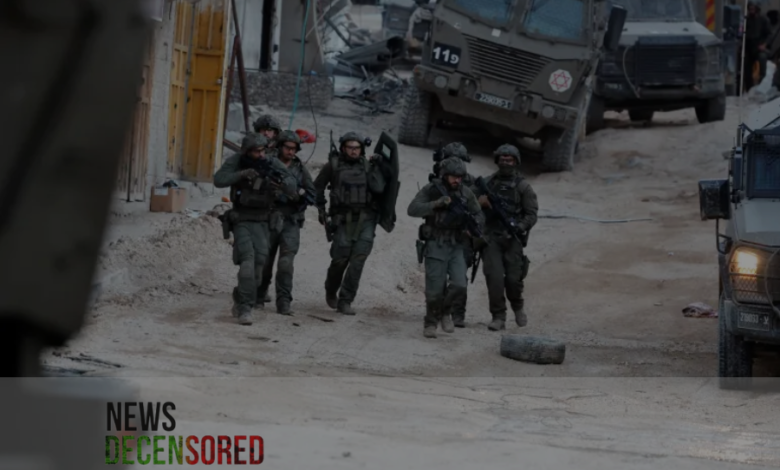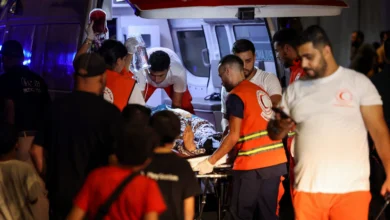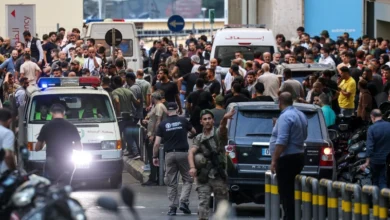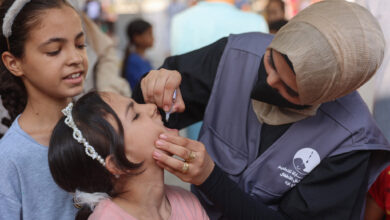Two More Palestinians Allege Abuse by Israeli Soldiers in the West Bank

Two other Palestinians who were shot along with other suspects in a militant raid on the occupied West Bank last week accused Israeli soldiers of abuse. They further accused the infringing soldiers of stripping them naked, forcing them to sit on the bonnet of an army jeep, and taking them on a ride around some village roads at high speeds.
Their accounts appeared days after a horrific video of 23-year-old Mujahid Abadi Balas hanging onto the bonnet of what can be clearly seen as an Israeli army jeep that went viral, causing global outrage.
The BBC has reached these men, they also reported receiving similar treatment during the operation carried out in Jabariyat on the outskirts of Jenin last Saturday. Samir Dabaya, 25, now a patient of a hospital in Jenin, series that Israeli forces fired bullets at him in the back in a Jabariyat operation. He stayed face-down and covered in blood for several hours until some soldiers noticed his condition.
He said, “When they turned me over and found that I was alive, they beat me with a gun,” and indicating the seat of the jeep, four of the Indigenous men picked him up bodily and then pitched him on the seat. [Her trousers were removed] I wished to clutch for the car door handle, but [one soldier struck my face and ordered me not to] He drove on, and I was awaiting the arrival of death.
Samir provided a video clip from an apparently fixed security camera that depicted him, mostly undressed, half lying in a speeding jeep with the number 1 painted on it. The place appears to correspond to that of the operation; however, there is no date or time displayed on the video.
Another Palestinian man, Hesham Isleit, said to BBC he was also shot twice in the chest at Jabariyat and similarly forced into the same military jeep. It was described that the suspect started shooting from all directions, and the man stated that he attempted to flee, but he was shot in the thigh. An army unit then came to pick up him and another man.
“They ordered us to stand up and undressed us,” Hesham stated. “Then they told us, hey, move to the front of the jeep. ” The car was very hot, ‘It was like sitting on fire,’ he said. “It got worse when I flopped on the jeans, t-shirt, and sandals I was wearing; I was left half-naked. Still, I refused to get on it. I remember touching the jeep with my hand, and it was scalding hot, but they continued to encourage me, telling me to get on it if I didn’t want to die. ”
The Israeli army stated that the record was being compiled on these cases. Concerning the recorded and distributed video with Mujahid Abadi Balas, the army stressed that he was tied to the jeep in “a violation of orders and procedures,” adding that there will be an investigation into the matter. When asked to respond to the actions of the forces in the video, the IDF said: “The conduct of the forces in the video of the incident does not denote the values of the IDF. ”
In an interview with the BBC from his hospital bed, Mujahid said that he never thought that he would make it alive out of the experience and was, in fact, offering his final Tafahurush as the vehicle moved. He later took the BBC to another video filmed at a farther distance as would seem to corroborate his allegations of being shoved into the car by the Israeli soldiers.
Mujahid said soldiers kicked him on the face and head and subsequently in the area of the lacerations inflicted by the previous kicking. He said that the soldiers grabbed his wrists and ankles and [swung him] to the right and left before tossing him up in the air. He collapsed to the ground, and after they carried him and took turns flogging him and threw him on the jeep and took him to a nearby house.
The army said that its forces arrived in Jabariyat to detain wanted suspects and that ‘‘terrorists fired at the troops, and the latter reciprocated in kind. ’’
Hesham said the house he and Mujahid were in belonged to Majd al-Azzi, another neighbor and friend who was arrested during the operation and is still held by Israelis. All three men, including the deceased, stated they did not possess any weapon and were promptly let go after identification.
Btselem- an Israeli human rights organization, has been following the cases. Its spokesman, Shai Parnes, stated that after the October 7 attacks of Hamas, acts of violence against Palestinians in the West Bank by Israeli soldiers and settlers became the most beastial. ”It’s more radicalized, it’s more brutalized, and it’s more extreme…,” he said. “Since October 7, over 500 Palestinians have been killed, out of whom over 100 are children, and Palestinian cities are being invaded on a daily basis. ”
The Israeli operations have specifically focused on Jenin after October 7, whereby more than 120 Palestinians, comprising fighters and civilians, have been shot dead by the Israeli soldiers. Jenin camp hosts fighters affiliated with Hamas and Islamic Jihad, and the armed men continue to move through the camp; people there say they do not see the end of the war.
The interviewed resident said: “What the army doesn’t know is that resistance is an idea planted in the heart. ” This will go on unabated; if one is killed, five more are there to substitute for him.
Similar attack this week in an Israeli operation, bombs that were planted in the roads around the camp exploded and affected two units; one soldier was killed while 16 others were injured. This conflict predates the Gaza War, but strategies and demeanors are being modified by it, and the conduct of the Israeli militiamen is also in focus in the West Bank as well.
This is a different arena from Gaza, but it is the same opposition in the same large war.




